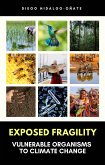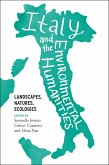"Environmental Impact" delivers a comprehensive examination of how modern consumer culture drives environmental degradation through various interconnected pathways. Drawing from research across 40 countries, the book reveals striking statistics: materialistic societies generate 45% more waste and consume 37% more energy per capita than their less consumption-focused counterparts.
This data-driven analysis traces the evolution of consumer culture from post-World War II to today's rapid acquisition cycle, illuminating how marketing strategies and planned obsolescence contribute to our environmental crisis. The book progressively builds its argument through three main themes: accelerating resource extraction, the environmental impact of mass production and disposal, and the long-term effects on global climate systems.
Using a multidisciplinary approach that combines environmental science, economics, and psychology, it examines everything from local municipal waste to global issues like deforestation and ocean pollution. The analysis is supported by concrete evidence, including satellite imagery, marine plastic concentration data, and atmospheric carbon measurements.
What sets this work apart is its practical framework for understanding and addressing environmental challenges, rather than simply criticizing materialistic behavior. While maintaining scientific rigor, it presents technical information in an accessible format, complete with case studies and actionable solutions for both individuals and systems. The book offers specific tools for evaluating personal consumption patterns and implementing sustainable practices, making it valuable for environmental professionals, policymakers, and concerned citizens alike who seek to understand and reduce their ecological footprint.
This data-driven analysis traces the evolution of consumer culture from post-World War II to today's rapid acquisition cycle, illuminating how marketing strategies and planned obsolescence contribute to our environmental crisis. The book progressively builds its argument through three main themes: accelerating resource extraction, the environmental impact of mass production and disposal, and the long-term effects on global climate systems.
Using a multidisciplinary approach that combines environmental science, economics, and psychology, it examines everything from local municipal waste to global issues like deforestation and ocean pollution. The analysis is supported by concrete evidence, including satellite imagery, marine plastic concentration data, and atmospheric carbon measurements.
What sets this work apart is its practical framework for understanding and addressing environmental challenges, rather than simply criticizing materialistic behavior. While maintaining scientific rigor, it presents technical information in an accessible format, complete with case studies and actionable solutions for both individuals and systems. The book offers specific tools for evaluating personal consumption patterns and implementing sustainable practices, making it valuable for environmental professionals, policymakers, and concerned citizens alike who seek to understand and reduce their ecological footprint.









